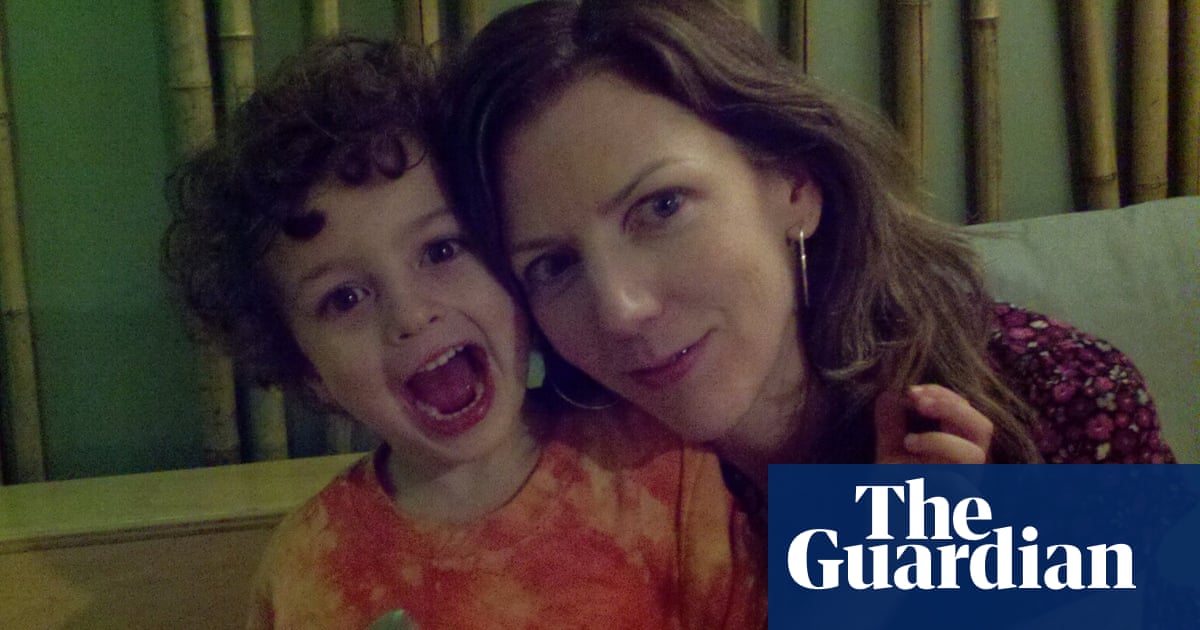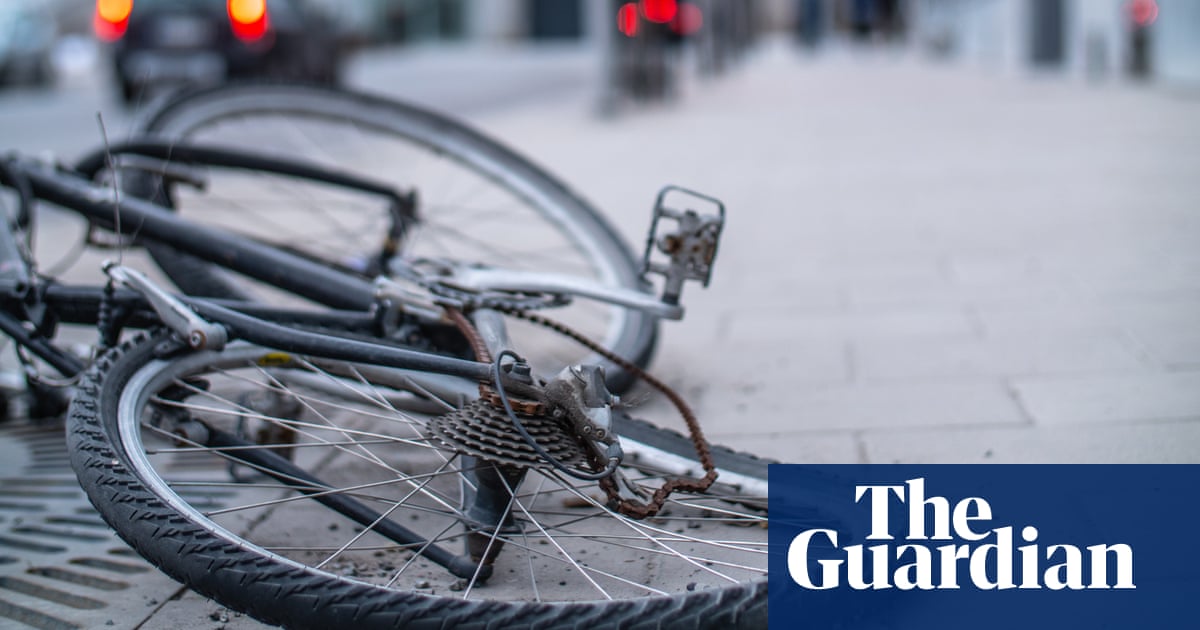
In the bathroom of a friend’s house in Washington DC, I waited anxiously for a few minutes before turning to look at the pregnancy test. It was positive. My eyes filled with tears; I was overjoyed, grateful and excited, but also very scared.
I think many parents can relate to this feeling, which seems to start as soon as we see that test result, and continues until our children are adults; we are overwhelmed with happiness for their mere existence while simultaneously terrified of the possibility of losing them. But as a Black feminist scholar, I was well aware that I had even more reason to worry.
I knew the dangers for a pregnant Black woman. I knew that neither my degrees, nor my access to resources could protect me from the Black maternal health crisis in which Black women in the US are three to four times more likely to experience a pregnancy-related death than our white counterparts. I was aware that my experience of receiving care for my child was likely to be tainted by bias that could lead to my needs being disregarded by the professionals who were meant to serve me and my baby. And I knew that this was the case partly because the medical system I would need to rely on was built by experimenting on the bodies of Black women who were enslaved.
Since I was pursuing my PhD at the University of Cambridge, I wondered if it would be safer for me to be based in the UK for prenatal care and my child’s arrival; I had access to the NHS, and was also aware that my care would be midwife-led. But I did my research and found that things were the same, if not worse: in the UK, Black women are five times more likely to die in pregnancy or in childbirth than white women.
What was I supposed to do? How could I let go of the stress that was surely having an adverse effect on my own and my child’s health? I found some inspiration close to home; I was in the middle of writing a book about the mothers of Martin Luther King Jr, Malcolm X and James Baldwin. Writing about the lives of Alberta King, Louise Little and Berdis Baldwin gave me strength and inspiration. The lives of these revolutionary mothers showed me how women of colour, and Black women more specifically, have often used their motherhood to fight against systems of domination.
I knew I must speak up about my fears and that I should lean on the experiences of other women of colour. I decided I wanted to work with doulas; to have women of colour by my side who were trained to support me emotionally and physically before, during, and after labour. I wanted someone I could speak to about my pregnancy concerns without waiting on hold, who would allow me to ask questions without judgment, who would help me communicate my needs in childbirth.
I was fortunate to find my doulas through the Oakland Better Birth Foundation, in California, which is dedicated to improving chances for mothers and babies.
During our first meeting, Samsarah and Mika asked why I wanted to work with them. I sat in my living room holding my husband’s hand and told them that I felt I had very little control over what would happen on the day I went into labour; that this lack of control scared me, and how aware I was of how dangerous things could become.
Samsarah, who has been a doula for more than 40 years, was kind and gentle but what she said surprised me: “You’re wrong.” I looked at her, confused. “You are the person in control in this pregnancy, and you will be in control during your labour and delivery. We are all here to listen to your wants and needs,” she said, gesturing towards my husband and Mika. I took a deep breath and felt myself relax with gratitude.
What Samsarah and Mika were presenting me with was an age-old practice for Black women: a new mother being led through her labour by a birth expert, usually an elder, in her community. It is also a tradition that has been under attack since the introduction of Medicaid in the US in the 1960s. Before this, Black women were met with hostility if they tried to give birth at hospitals, sometimes even being turned away; if they were admitted, they were placed in segregated care that was far from equal to their white counterparts. When welcoming Black women into hospitals became profitable and the birthing experience was medicalised, these women were treated as though they knew less about the birthing body than the doctors (invariably white men). It is an attitude that prevails.
Traditional birthing experts have been cast as untrained, and women who wanted to work with them were vilified for risking their children’s lives, by not entrusting themselves to hospitals and doctors. Over the years, the separation of midwives and doulas from hospitals in the US and the lack of acknowledgment of their role as birth experts means they are scarce, especially in communities which cannot afford to pay for them. Getting help from a midwife or a doula has become a privilege for those who can pay for it. I originally wanted to have a home birth but, but where I lived in Stockton, California, one of the most diverse cities in the country, I could not find a midwife of colour nearby. My next option was to work with two doulas who were willing to drive 90 minutes to see me every time we met.
Throughout the pregnancy, my husband and I would sit down with them every few weeks. They continued to empower me to feel in control. I was strong, I was capable, I understood my body: my body could do this. In between sessions, they checked on my symptoms and tailored dietary recommendations to help alleviate any discomfort. They involved my husband and taught him techniques to use during my pregnancy and labour to soothe and comfort me. They trained us both to know what to expect on the day, and gave us techniques for managing labour at home until it was time to go to hospital. They reminded me constantly that I was not alone.
The day arrived. I went to bed the night before with a serious case of back-to-back Braxton Hicks contractions. I woke up that morning with period-like cramping and a little blood. The cramps grew worse throughout the day until they turned into contractions. I texted my doulas with updates from that morning until labour really began that evening, and the two women arrived at our house shortly afterwards. They and my husband massaged me where I felt pain, played soothing music, reminded me of my breathing techniques. At the hospital, they handed my birth plan to my nurses and because I did not want to be hooked up to an IV drip, they stood ready to give me water and juice whenever I needed it.
My labour lasted for 15 hours, and they were by my side the entire time, telling me just how strong and fierce I was. My son was born at 9.07. Following an incredible delivery, my doulas taught me how to nurse, as well as how to carry my baby in a wrap; they checked in with us in person three times more over the following weeks. I still text them with updates and random concerns.
I went out of my way to find people who would support me in this extraordinary moment. But it shouldn’t be so unusual; research has proven that working with midwives and doulas results in better birth outcomes. All birthing parents should feel as heard and supported as I did: partners should feel included, the environment filled with happiness rather than fear. Even when I felt the most unimaginable pain during contractions, the people around me made me feel stronger and more powerful than I ever had before.
Anna Malaika Tubbs is the author of Three Mothers: How The Mothers Of Martin Luther King Jr, Malcom X And James Baldwin Shaped A Nation, published by William Collins, £18.99. To buy a copy for £16.52, go to guardianbookshop.com












